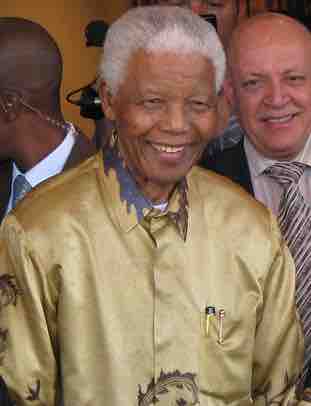Leadership is the ability to organize a group of people to achieve a common purpose. Although the leader may or may not have any formal authority, students of leadership have produced theories involving traits, situational interaction, function, behavior, power, vision and values, charisma, and intelligence, among others. A leader is somebody who people follow, somebody who guides or directs others.
Theories of Leadership
The trait theory of leadership seeks to find attributes that all leaders possess. According to researchers of leadership, all individuals can and do emerge as leaders across a variety of situations and tasks. Significant relationships exist between leadership and such individual traits as: intelligence, adjustment, extraversion, consciousness, openness to experience, and general self-efficacy.
Considering the criticisms of the trait theory outlined above, several researchers have begun to adopt a different perspective of leader individual differences–the leader attribute pattern approach. In contrast to the traditional approach, the leader attribute pattern approach is based on theorists' arguments that the influence of individual characteristics on outcomes is best understood by considering the person as an integrated totality rather than a summation of individual variables.
Situational theory also appeared as a reaction to the trait theory of leadership. Social scientists argued that history was more than the result of intervention of great men. Herbert Spencer (1884) said that the times produce the person and not the other way around. This theory assumes that different situations call for different characteristics; according to this group of theories, no single optimal psychographic profile of a leader exists. By contrast, functional leadership theory is a particularly useful theory for addressing specific leader behaviors expected to contribute to organizational or unit effectiveness. This theory argues that the leader's main job is to see that whatever is necessary to group needs is taken care of; thus, a leader can be said to have done their job well when they have contributed to group effectiveness and cohesion.
Styles of Leaderships
Leadership style refers to a leader's behavior. It is the result of the philosophy, personality, and experience of the leader. Under the autocratic leadership style, all decision-making powers are centralized in the leader, as with dictators. The democratic leadership style consists of the leader sharing the decision-making abilities with group members by promoting the interests of the group members and by practicing social equality. This style of leadership works well because people feel their voice is being heard, but it can result in fighting and animosity if opinions clash and decisions can not be reached. In the laissez-faire leadership style, a person may be in a leadership position without providing leadership, leaving the group to fend for itself. Subordinates are given a free hand in deciding their own policies and methods. Expressive leaders are concerned about the emotional well-being of the group and want the group to function harmoniously. Authoritarian leaders are dictator-like; they make all the decisions for the group and have the final say, regardless of other's feelings or opinions. Finally, someone with a toxic leadership style is a person who has responsibility over a group of people or an organization, and who abuses the leader-follower relationship by leaving the group or organization in a condition that's worse than when he/she originally found it.

Nelson Mandela
Nelson Mandela, the President of South Africa from 1994 to 1999, is an example of democratic leadership.
Autocratic leadership
Benito Mussolini, a fascist dictator who ruled Italy from 1922 to 1943, is an example of autocratic leadership, where all decision-making powers were centralized on him.